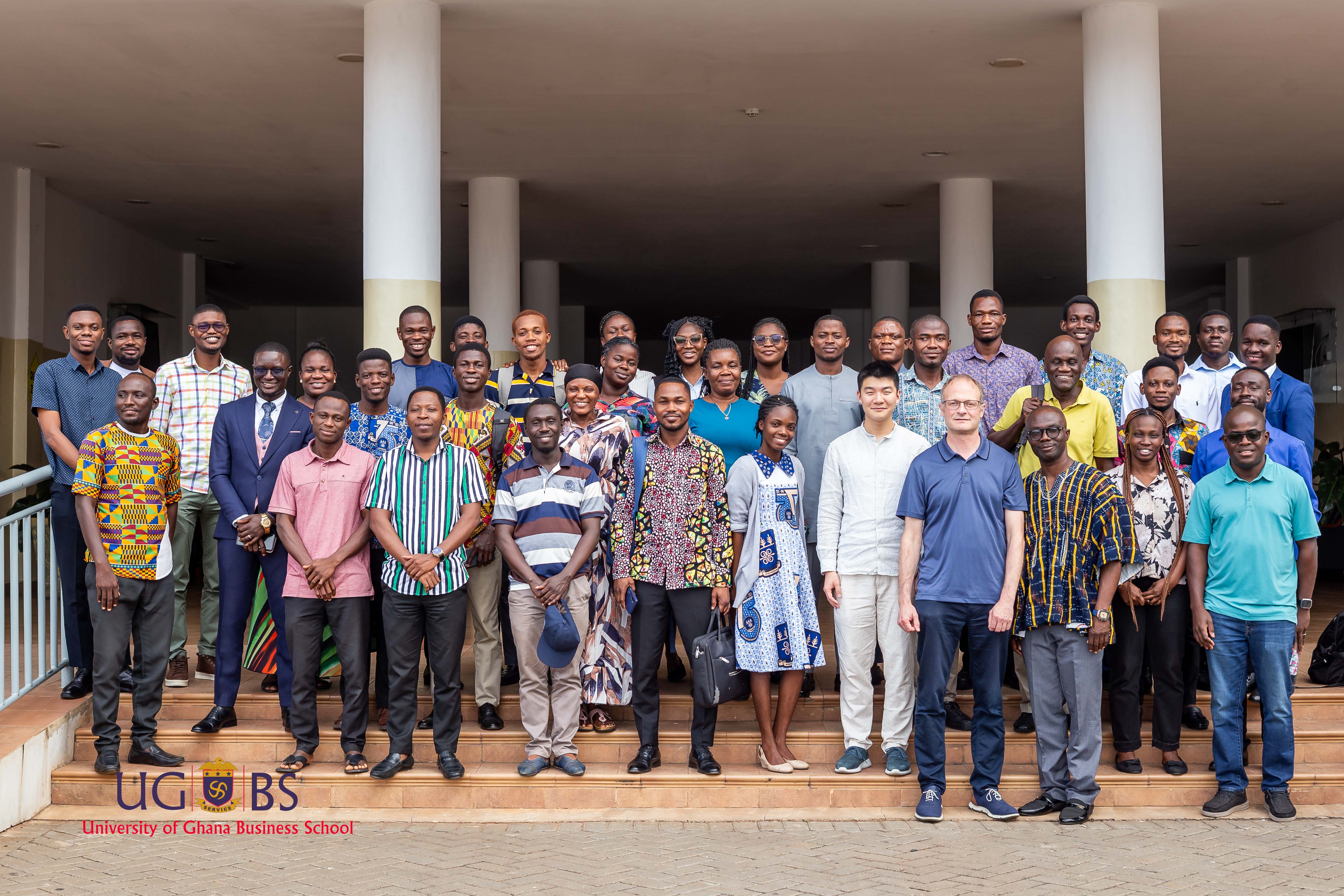
UGBS Department of Accounting Organises Accounting Research Seminar
University of Ghana Business School Department of Accounting organised an Accounting Research Seminar for MPhil and PhD students from 12th to 15th August 2025 at the Graduate School. The workshop aimed to enhance participants’ research skills, introduce advanced methodologies, and provide guidance on developing high-quality dissertation topics.
Prof. Hans Christensen, University of Chicago, stated that some view accounting research narrowly, focusing on financial outcomes. However, he explained accounting research as gathering, processing, and communicating information, which can apply to many contexts like mining safety, health policies, and sustainability, allowing space for diverse and unconventional topics to shape the field over time. Prof. Christensen's discussion emphasised that impactful accounting research should aim at contributing knowledge that other disciplines cannot, ideally addressing relevant questions that attract interest beyond accounting itself. He noted that true impact is often in research that changes perspectives, even if it’s not the most cited and not by metrics like count of citations or publications.
Prof. Christensen urged participants to measure success by doing research they find important and aligned with the kind of impact they want to make, while also addressing a broader economic or conceptual issue concretely to warrant investigation. According to him, Africa and other emerging economies have a comparative advantage in locally grounded research, especially when results differ from those in Western contexts. “And are seen as key strategies for producing work that is both relevant locally and competitive in global top-tier journals”.
Prof. Alex Dontoh, Stern School of Business, New York University, stated that accounting research often gets cited only within accounting, while we regularly cite finance and economics. He mentioned that other disciplines will cite accounting research if it is interesting and innovative. Prof. Dontoh further noted that for accounting to gain recognition, it must produce contributions valuable enough to be cited across disciplines.
Mr. Fred Asante, Cornell University, urged participants to leverage local research advantages, especially in accessing and understanding local, to develop impactful ideas to attract partners across the world. Mr. Asante also encouraged them to regularly engage with top-tier academic literature and build collaborations to refine ideas, methods, and execution standards to improve research quality and competitiveness.
Mr. Samuel Chang, University of Chicago, shared insights into drawing causal inferences with Difference-in-Differences (DiD) and event studies. He explained DiD as a method to estimate causal effects when you can’t run a true experiment. Mr. Chang further explained that it looks at how an outcome changes over time for a treated group compared to a similar control group. He noted that good DiD studies anticipate and address group differences and factors that could distort the findings.

Prof. Williams Coffie, Head of the Department of Accounting, expresses gratitude to the visiting researchers, noting that their presence and mentorship have inspired new ways of thinking about accounting research, particularly integrating primary data with traditional data sets. He urged participants to continually learn, expand their methodological toolkit, particularly by learning and applying DiD and impact analysis, if they want to publish in high-ranked journals in accounting.